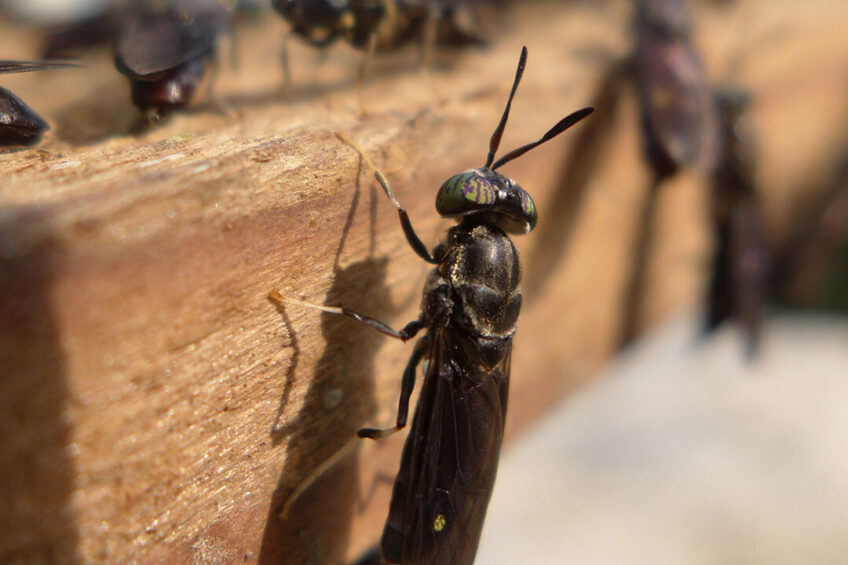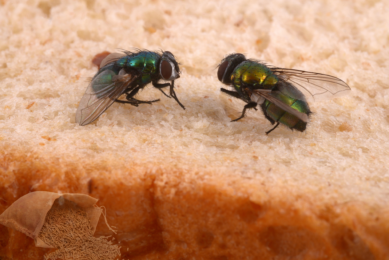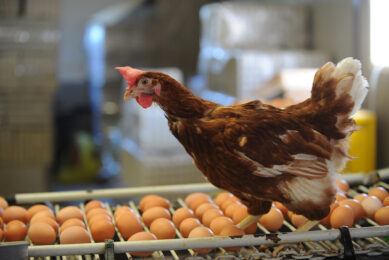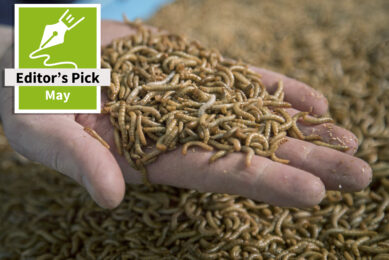Unveiling the potential of BSF’s antimicrobial peptides

Recent research sheds more light on the diversity and potency of Black soldier flies (BSF) antimicrobial peptides (AMPs) against common pathogenic bacteria. Unveiling the potential of AMPs to inhibit bacteria presents an alternative tool against antibiotic-resistant bacteria.
The increasing research regarding natural antimicrobial compounds shows a growing interest and demand for their production in the coming years. As a producer of BSF-based feed ingredients, Nutrition Technologies believes identifying and characterising the AMPs leads to effective utilisation of BSF antimicrobials to support the circular economy while contributing to environmental sustainability and reduction in antibiotic resistance.
What are antimicrobial peptides (AMPs)?
AMPs are small proteins or peptides naturally produced in living organisms as a defence mechanism against bacterial pathogens. In insects, the humoral response involves the synthesis of a wide range of AMPs in the fat body, hemocytes, digestive tract, salivary glands, and the reproductive tract. Reports show the BSF larva contains the most extensive collection of AMPs among insects. These AMPs can be classified into families depending on their amino acid sequence and tertiary structure. The common insect AMPs include cecropins, defensins, proline-rich peptides, and attacins. While their exact mechanism of action is not fully understood, most peptides work in 3 main ways:
Cytokine signalling, in which the peptides trigger downstream immune responses such as cytokines and macrophages to eliminate invading cells.
Direct pore formation, whereby the peptide punctures a hole in the bacteria cell wall directly.
Intracellular function inhibition, where the peptide blocks essential ion transporters and cell surface proteins causing bacteria lysis.
Diversity and potency of BSF antimicrobial peptides
In their research, researchers from Nutrition Technologies used chemical analytical techniques to identify and characterise AMPs across three sources: fresh BSF larvae, BSFL dried meal, and a purified liquid extract of AMPs. The researchers characterised 29 unique peptides in the BSFL, 14 in the meal, and 23 in the AMP extract (Figure 1, representing the diversity of peptides, not the concentration). The researchers suggested the 14 peptides present in the BSF meal product are likely heat-stable and moisture-stable molecules which continue to have active function against bacteria after processing.
Figure 1 — Antimicrobial peptides (AMPs) identified in BSF samples

To evaluate their antibacterial potency, the peptides extracted from fresh BSF larvae (BSFL AMP Extract) and BSFL meal were tested against several pathogenic bacteria commonly found in veterinary diseases. Based on the measured minimum inhibitory concentration (MIC), BSFL meal extract exhibited remarkable antibacterial activity against pathogenic Salmonella, E. coli, and Staphylococcus strains, despite containing fewer unique peptides compared to the liquid extract (BSFL AMP Extract). According to the researchers, the peptide diversity of BSF meal was potent enough to effectively kill the bacteria. On the other hand, both the AMPs from BSF meal and liquid extract exhibited high efficacy against Vibrio parahaemolyticus, a prevalent pathogen in aquaculture.
This promising research suggests the potential of BSFL meal as a natural and effective solution for mitigating bacterial infections across various sectors, from poultry farming to pet health, offering a sustainable and preventative approach to combating microbial threats
remarked the researchers.
Concluding remarks
The researchers concluded that their findings provide evidence that not only does the BSF itself contain functional AMPs, but so does the commercially available dried insect meal product. The researchers strongly believe the potency of BSF antimicrobial peptides against pathogenic bacteria presents BSF-based feed ingredients as potential animal-health-imparting feed additives. And, due to the rise in antibiotic resistance in the livestock industry, the researchers believe the BSF AMPs could offer an alternative natural solution.











